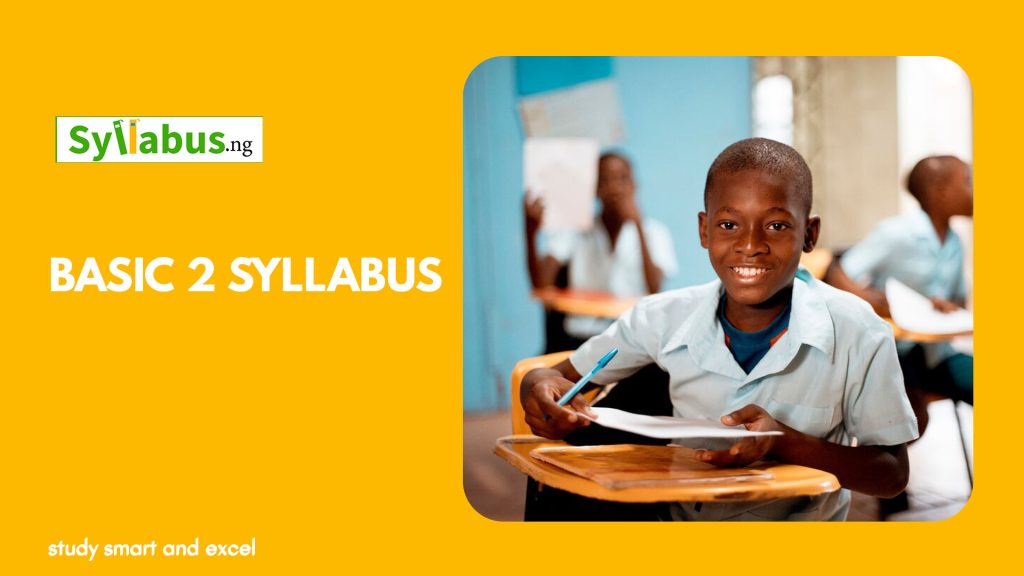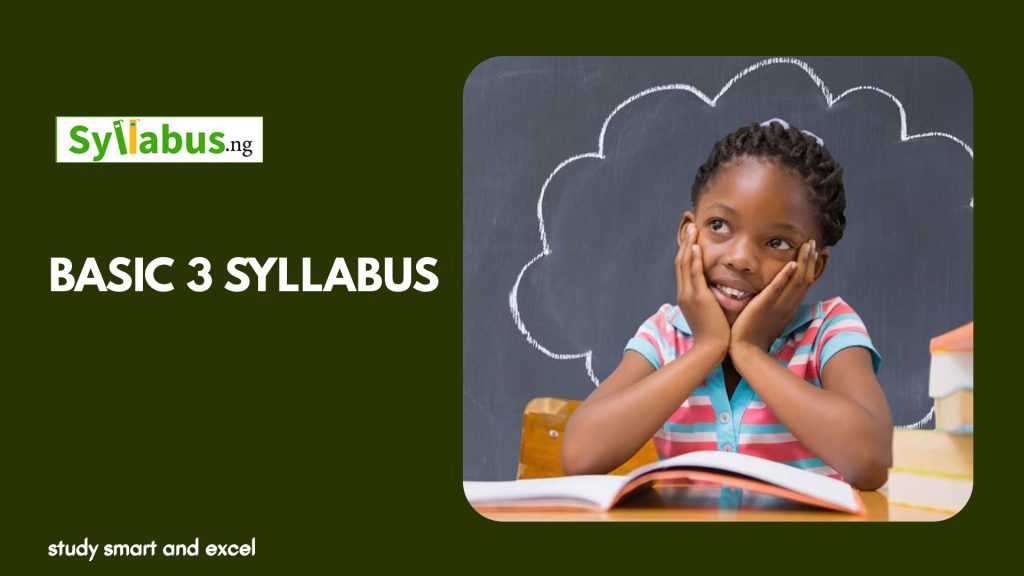Primary 1 Islamic Religious Studies Scheme of Work
Download the Unified Basic 1 Scheme of Work for Islamic Religious Studies, to serve as a guide for educators and primary school teachers

Home » Primary 1 Scheme of Work » Primary 1 Islamic Religious Studies (IRS) Scheme of Work
Home » Primary 1 Scheme of Work » Primary 1 Islamic Religious Studies (IRS) Scheme of Work
About Islamic Religious Studies Scheme of Work for Primary 1
The scheme of work covers various aspects of Islamic Studies such as the Arabic Alphabet letters from (Alif-Yaw), they will also be taught some surahs in the Quran and their meaning ( Surah-al Fatihah, Surat-al Iklas, etc).
The Islamic Studies Scheme of Work for Primary 1 also covers basic aspects such as Adhan(call to prayer), The Islamic rule of conduct, The attributes of Allah, At-Tahara(Cleanliness), Wudu(Ablution), etc.
This primary 1 scheme is designed to educate the pupils about the basic things they need to know as Muslim children. While teaching the pupils, the educators should make sure the pupils understand what they are being taught, and they should also memorize and practice them.
Download Primary 1 Islamic Religious Studies (IRS) Scheme of Work

Know what’s expected of you as an educator
Download the Lagos State Unified Scheme of Work for Primary 1 Islamic Religious Studies (IRS)
Primary 1 First Term Scheme of Work for Islamic Religious Studies
| LAGOS STATE GOVERNMENT MINISTRY OF EDUCATION UNIFIED SCHEMES OF WORK FOR PRIMARY SCHOOLS. | ||
| Islamic Religious Studies Scheme of Work for Primary/Basic 1 | ||
| CLASS | Primary/Basic 1 | |
| SUBJECT | Islamic Religious Studies | |
| TERM | First Term | |
| WEEK | TOPICS | Learning Objectives |
| 1 | Readiness/ Test Revision | |
| 2 | Arabic Alphabee: Alif to Säd | By the end of the lesson. the pupils should be able to: i. pronouncc the Arabic Alphabets correctly ii. identify each of thc Alphabet iii. write the Arabic Alphabets |
| 3 | Arabic Alphabets: Däd to Yäw | By end of lesson, the pupils should be able to; i. pronounce the Arabic consonants ii. identify each of the the Arabic Alphabets |
| 4 | Suratul Fätihah Chapter 1 VI—4 | By the end of the lesson, the pupils should be able to: i. read the first four verse of Süratul-Fatihah ii.differentiate Süratul-fitihah from other Sürah iii. identify the use of Süratul Fätihah |
| 5 | Süratul Fätihah Chapter 1 vs-7 | By the end of the lesson, pupils should be able to: i. read the last three verse of Süratul Fatihah ii. mention the reason for recitaöon; iii. memorize Suratul Fatihah |
| 6 | Articles of Faith in islam | By the end of the lesson, pupils should be able to: i. enumerate the six article of faith ii. explain the meaining of those articles iii. say the usefulness of these articles to muslim. |
| 7 | MID-TERM TEST/ MID-TERM BREAK | |
| 8 | Four or the attributes of Allah Al-Khäliq Ar-Rabb Ar Rahmän Ar Rahim | By end of the lesson, the pupils should be able to: i. recite these attributes of Allah; ii. relate these attnbutes of Allah as it affect man; iii. memorize these attributes of Allah with their meanings |
| 9 | Signifiance of the belief of in Prophet Muhammad (SAW) as the last Prophet of Allah. | By the end of the lesson, the pupils should be able to: i. justify that Prophet Muhammad (SAW) was the seal of all Prophets of Allah; ii. assess some of the works of the Prophet Muhammad; iii. explain that the Quran was sent |
| 10 | Learning Five Names out of Twenty-Fivc Names of Allah mentioncd in the Qur’än | By the cnd of the lesson, the pupils should be able to: i. recall thc names of thcsc Prophets ofAllah:• Adam (AS), Nuh (AS), Hud (AS), Salih (AS), Lut (AS); ii. assess the functions pcrformcd by these Prophets ofAllah; iii. cite the relevant verses from the Quiän. |
| 11 | Four of the attributes of Allah Al-khäliq Ar-Rabb Ar•Rahmän Ar-Rahim | By end ofthe lesson, the pupils should be able to: i. recite these atüibutes of Allah; ii. relate these attributes of Allah as it affect man iii. memorize these atributes of Allah with their meaning |
| 12 | REVISION | |
| 13 | EXAMINATION | |
Primary 1 Second Term Scheme of Work for Islamic Religious Studies
| CLASS | Primary/Basic 1 | |
| SUBJECT | Islamic Religious Studies | |
| TERM | Second Term | |
| WEEK | TOPICS | Learning Objectives |
| 1 | Readiness Test/Revision | |
| 2 | Arabic Alphabets with Objects Alif- Säd | By the end of thc lesson, the pupils should be able to: i. pronounce the Arabic Alphabets with objects correctly bctwccn Alif-Sad ii. identify cach of the Alphabets objects between Afif to Säd, iii. write the Arabic Alphabets with objects correctlty from Alif to Sid |
| 3 | Arabic Alphabets with Object Did to Yäw | By the end of the lesson. the pupils should be able to: i. Pronounce the Arabic Alphabets with objects correctly between Däd to Yäw; ii. identify each of the alphabets with objects between Däd to Yäw; iii. write the Arabic alphabets with obtect correctly from Däd to Yaw |
| 4 | Süratun-Näs (QI 14 verses 1-3) | By the end of the lesson, the pupils should be able to: i. recite Süratun-Näs verse 1-3; ii. translate the verses into English; iii. list the uses of the Sürah to Muslims |
| 5 | Süratun•Nas (Q114 verses 4) | By the end of the lesson. the pupils should be able to: i. recite Süratun-Näs verse 4-6; ii. translate these verse into English iii. brainstorm on the importance of the Sürah |
| 6 | At-Tahärah: Cleanliness in Islam | By the end of the lesson. the pupils should be able to: i. describe the meaning of at -Taharah in Islam; ii. state the types of cleanliness ie (i)Istinjar (ii) Istijmar; iii. justify position of cleanlines in Islam |
| 7 | MID-TERM TEST/ MID-TERM BREAK | |
| 8 | Sürotul+alaq (Q113 verses 1-2) | By the end of the lesson the pupils should be able to: i. recite Süratul Falaq verse 1 -2; ii. translate these verses into English; iii. mernonze the Sürah |
| 9 | Sürotul.FaIaq (QI 13 verses 3 -5) | By the end of the lesson, the pupils should be able to: i. recite Süratul Falaq verses 3 – 5, ii. translate these verses into English; iii. memorize the Sürah |
| 10 | Ablution (Al Wudü) | By the end of the lesson, the pupils should be able to: i. explain the meaning of ablution; ii. justify reasons for perfomance of ablution; iii. demonstrate how ablution is performed and materials needed |
| 11 | Obedience to Allah | By the end of the lesson, the pupils should be able to: i. explain the meaning of the two words Allah and Parents; ii. justify reason to obedience of Allah and Parents; iii. classify ways of obedience to Allah and Parents. |
| 12 | REVISION | |
| 13 | EXAMINATION | |
Primary 1 Third Term Scheme of Work for Islamic Religious Studies
| CLASS | Primary/Basic 1 | |
| SUBJECT | Islamic Religious Studies | |
| TERM | Third Term | |
| WEEK | TOPICS | Learning Objectives |
| 1 | Readiness test / Revision | By the end of the lesson. the pupils should bc able to: i. List some topics treated last session ii. justify the relevance of those topics iii. solve all questions related to the last session work done |
| 2 | Arabic Alphabets with Objectsl: Alif -Yäw | By the end of the lesson, the pupils should be able to: i. pronounce the Arabic Alphabets Alif to Yäw) correctly with their objects; ii. identify each of the Arabic Alphabets (Alifto Yäw) with objects iii. Write the Arabic Alphabets with object correctly from Alif to Yäw |
| 3 | Sümtul-lkhläs (Q112 verses 1 -2) | By the end of the lesson, the pupils should be able to: i. recite Süratul Ikhläs verse 1-2 ii. translate these verses into English iii. memorize the Verses |
| 4 | Süratul Ikhlas (QI 12 verses 3 | By the end of the lesson, the pupils should be able to: i. recite Süratul Ikhläs verse 3-4 ii. translate these verses into English iii. memorize the complete surah |
| 5 | Things that mar Ablution (Al-Wudü’) | By the end of the lesson, the pupils should be able to: i. list things that spoil ablution ii. justify the reasons for the performance of abluäon iii. state when our ablution is marred. |
| 6 | Five daily prayers (Satawätul Khamsah) | By the end of the lesson. the pupils should be able to: i. list the five daily prayers; ii. differentiate the features of each of the daily prayers, iii. justify the reasons for the observing of the daily prayers |
| 7 | Mid Term Tests/Open Day/Mid Term Break | |
| 8 | Five daily prayers (Salawåtu-Khamsuh) Its Time and Numbers of Rakah | By the end of the lesson. the pupils should be able to: i. say the cxact time for each of five daily prayers ii. mention the actual numbers of Rak’ah for each of the five daily prayers iii. tell why the time and numbers of Rak’ah for each of the five daily prayers are important |
| 9 | Al-Adhän (Call to prayer) | By the cnd of the lesson, the pupils should be able to: i. describc the meaning of Adhän ii. memorize the text of Adhän (call to prayer) from Allahu Akbar to Ash hadu anna Muhammadan Rasulu lah iii. translate thc text of Adhän into English |
| 10 | Al-Adhän (Call to prayer) Continues | By the end or the lesson, the pupils should bc ablc to: i. say thc namc of thc person who call the Adhän ii. outlinc thc time and the reason for the why Adhän Is called iii. memorize the text of Adhän (call to prayer to the last) |
| 11 | Islamic Rules of Conducts | Bythe end ofthe lesson. the pupils should be able to: i. list the Islamic rules of conducts such as table manner, sneezng greetings etc ii. apply these rules in their dany life. iii. examine the benefits of Islamic rules of conduct. |
| 12 | REVISION | |
| 13 | EXAMINATION | |
Recommended Islamic Religious Studies Textbooks for Primary 1
Recommended Textbooks for Pupils & Educators
- S.A. Fatokun and others, Rel. & National Values (IRS), Melrose, 2015.
- Adesola Luqman & others, Rel. & National Values (IRS), Rasmed Publications, 2014.
- Sayed H.A. Malik and others, Islamic Religious Studies and National Values, University Press, 2015.
- M.M. Yakubu & Others, Islamic Studies, Learn Africa, 2017.
- Muhib O. Opeloye & others, New Rev. Curr. Islamic Studies, WABP, 2015.
- Abd. Mojeed O. Adebayo, Islamic Rel. Studies, AMFIT Pub. Bureau, 2014.
- T.O. Salaudeen, Islamic Studies, Literamed, 2014.
- Abd. AzeezA.l. Khalid M, Islamic Studies, Sterling, 2014.
- Malik Umar & others, RNVE Islamic Studies, Extension, 2017.
- sayed H.A., Malik & & Others, Islamic Rel. Std. & Nat. Values, University Press, 2015.
- RNV Islamic Studies, 2014.
Workbook
Sayed H.A. Malik & others, Islamic Religious studies & National Values for Pry Schools Work Book, University Press, 2015.
Download Primary 1 Islamic Religious Studies (IRS) Scheme of Work

Know what’s expected of you as an educator
Download the Lagos State Unified Scheme of Work for Primary 1 Islamic Religious Studies (IRS)










